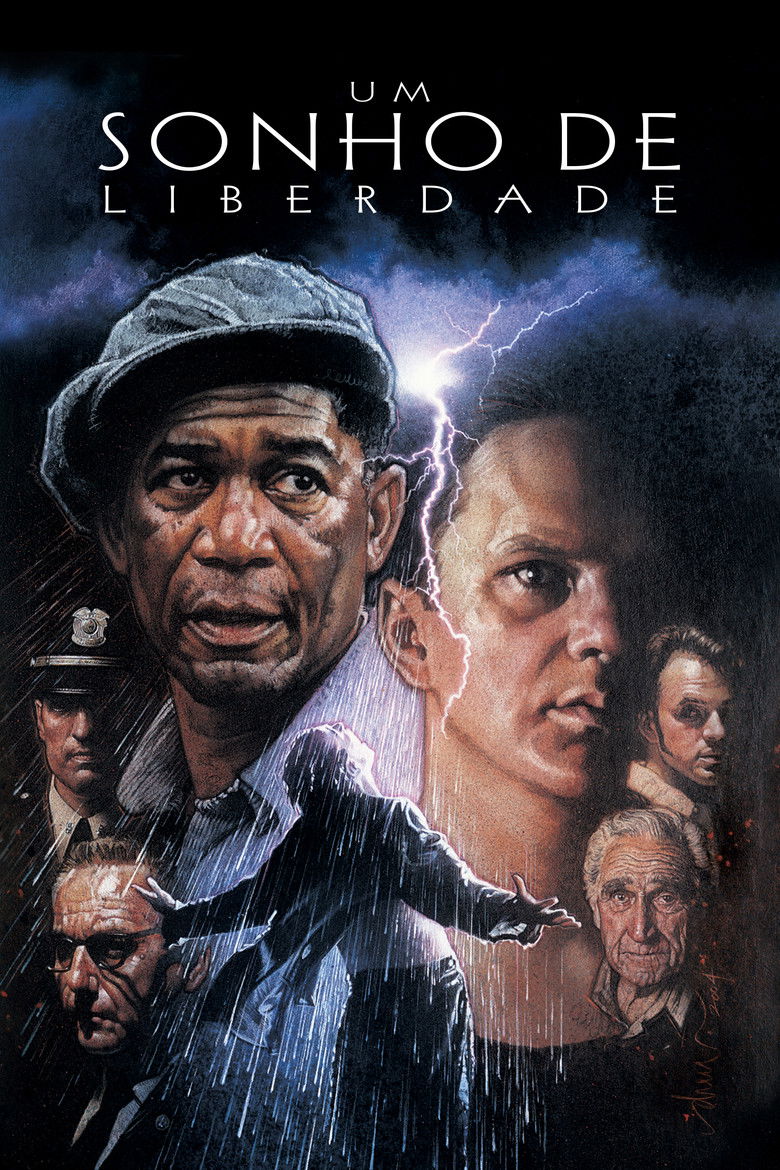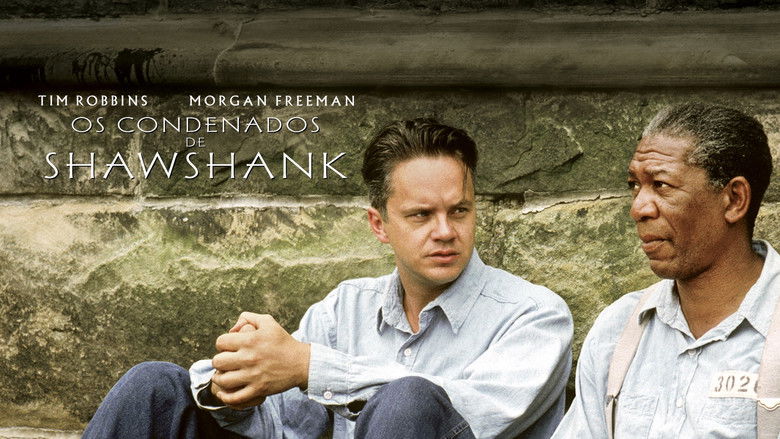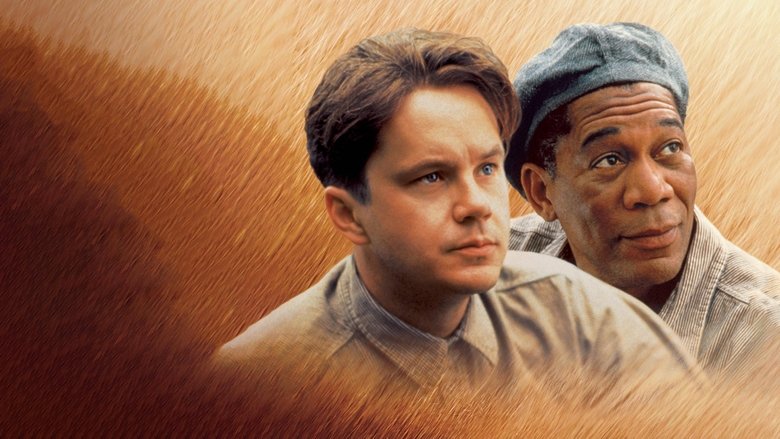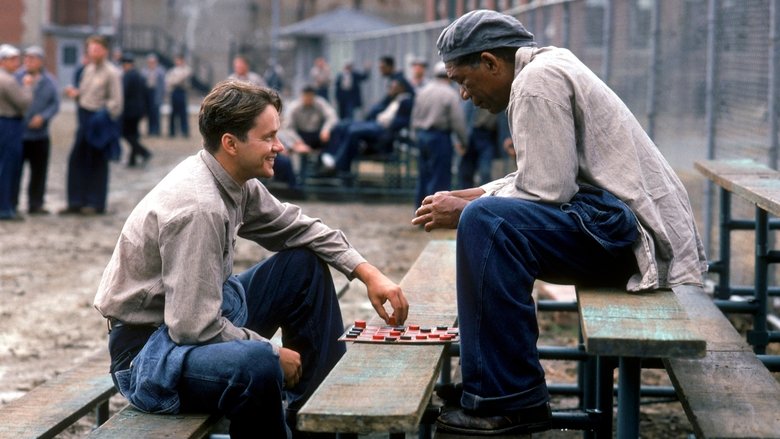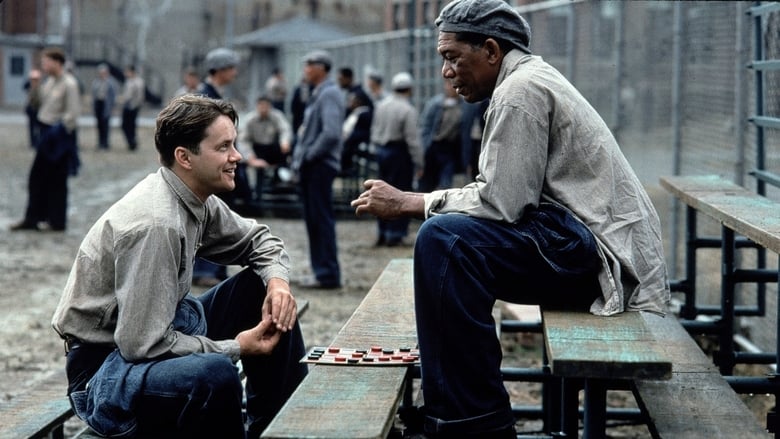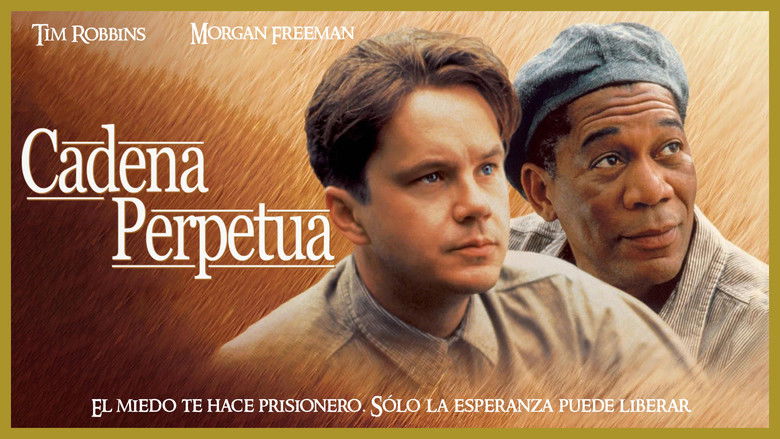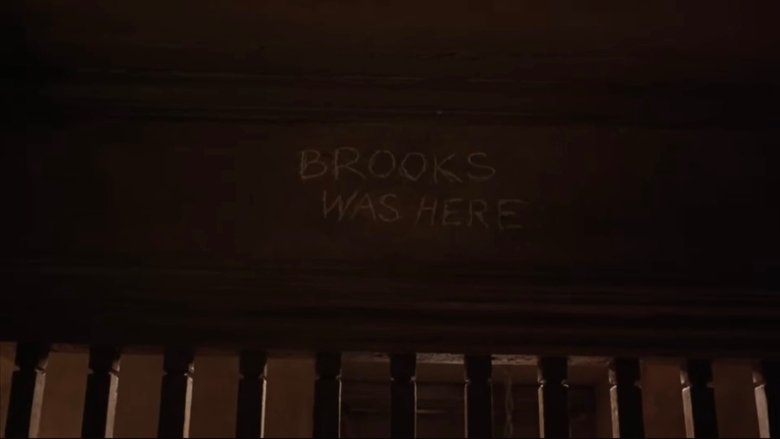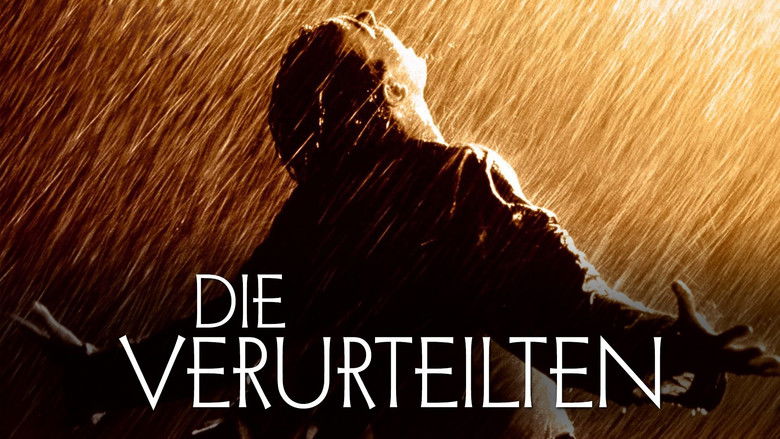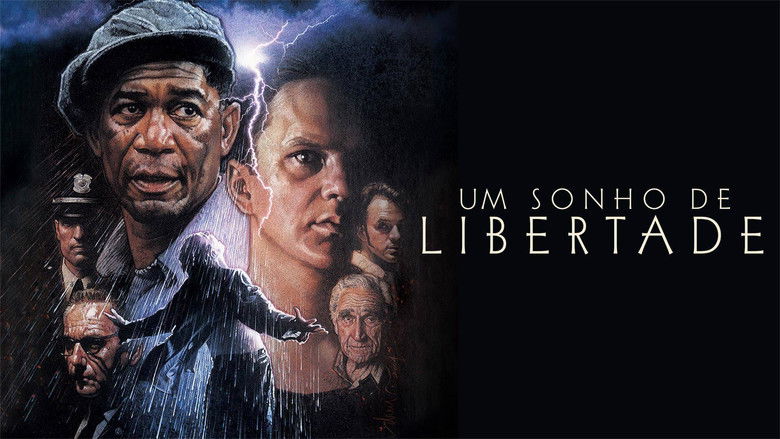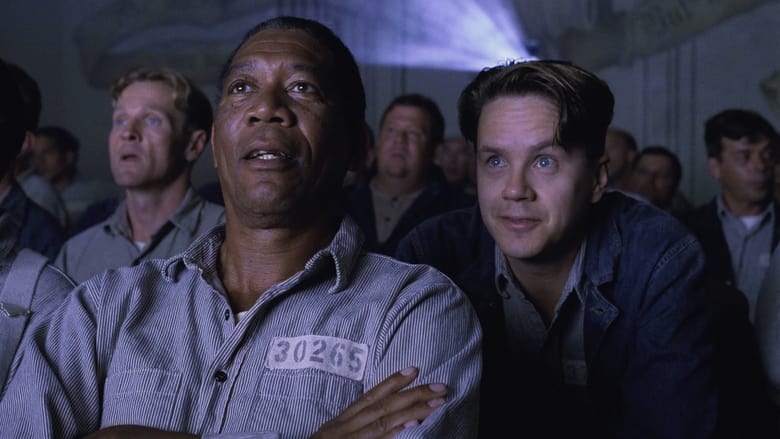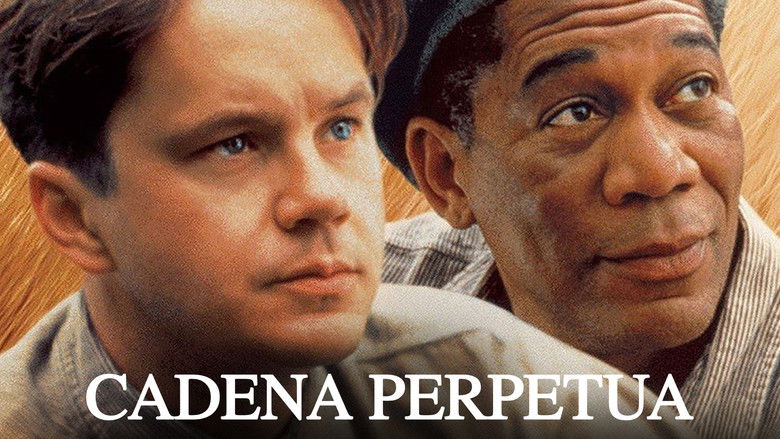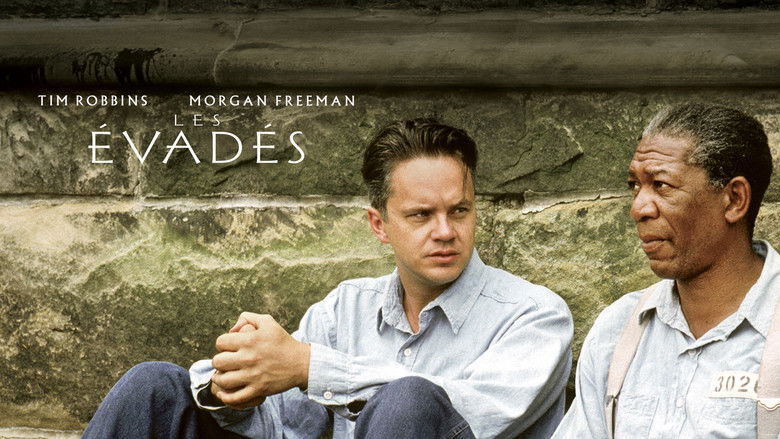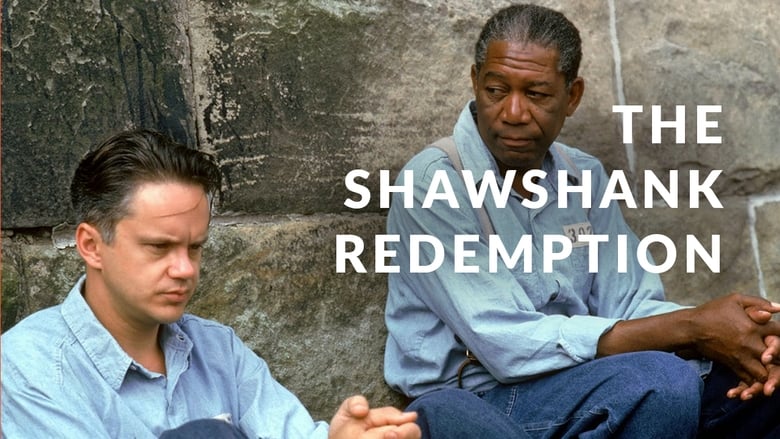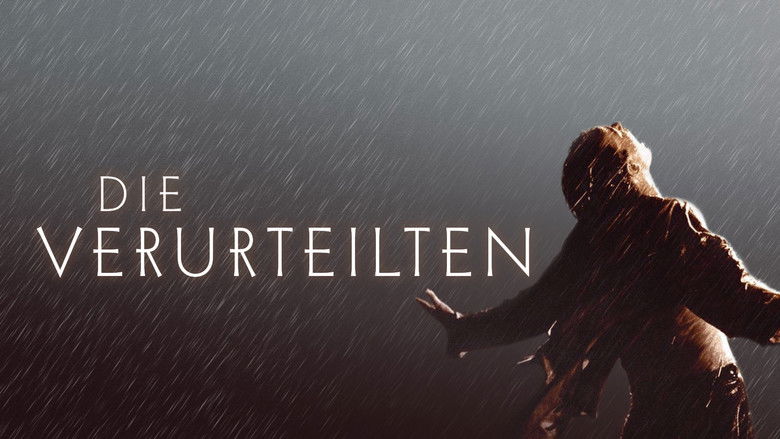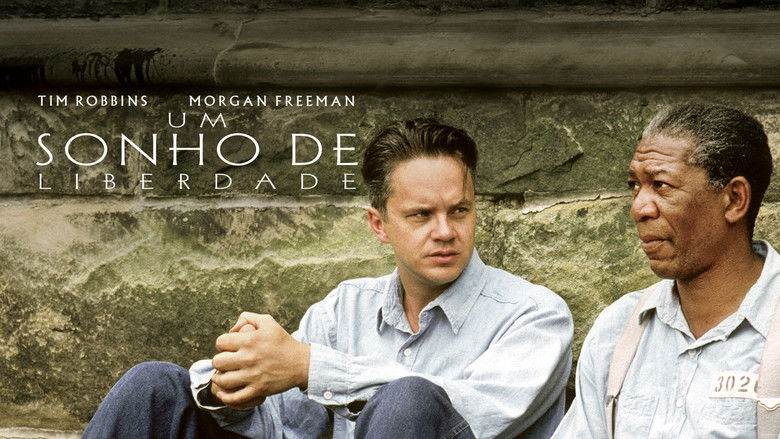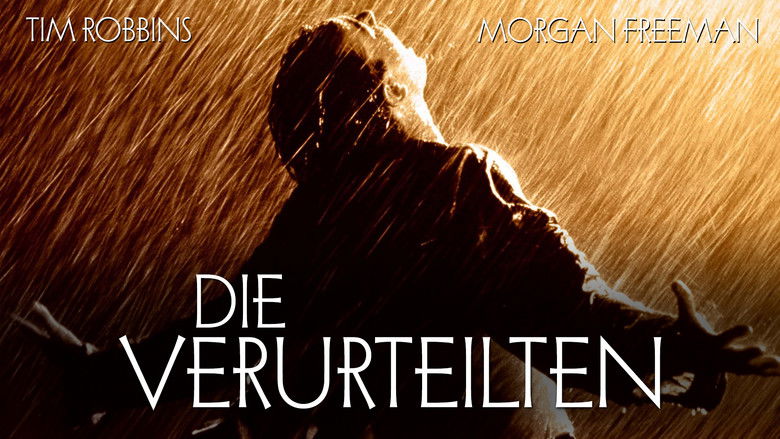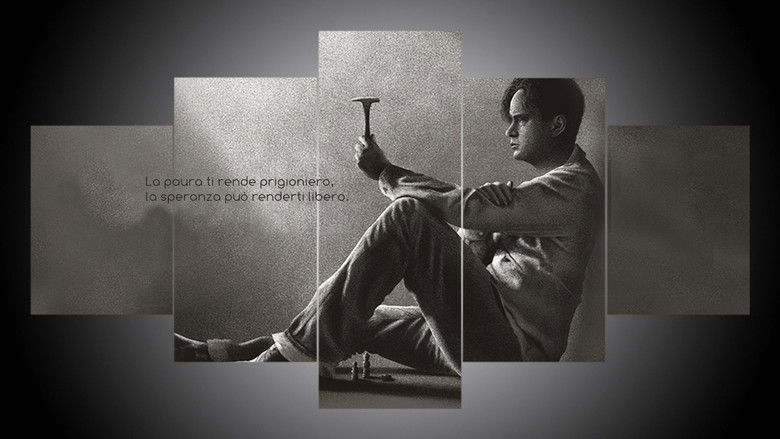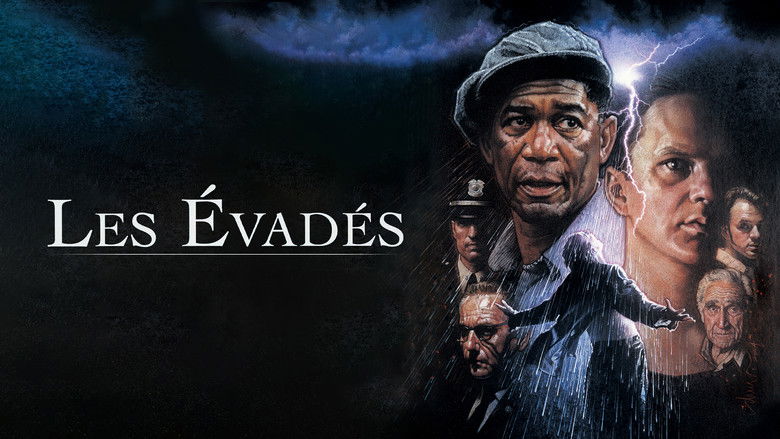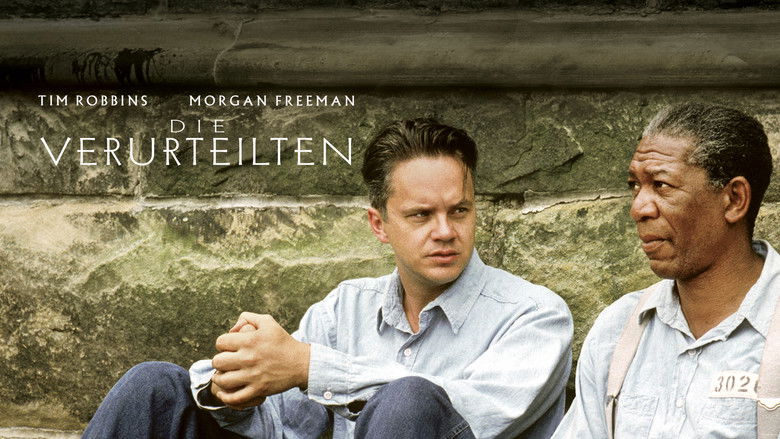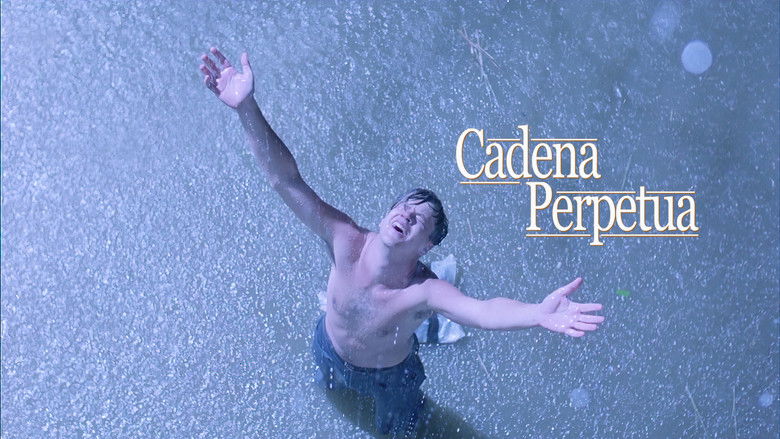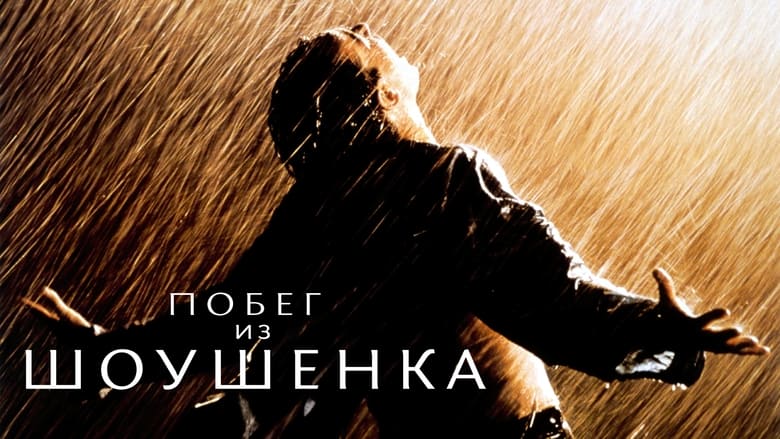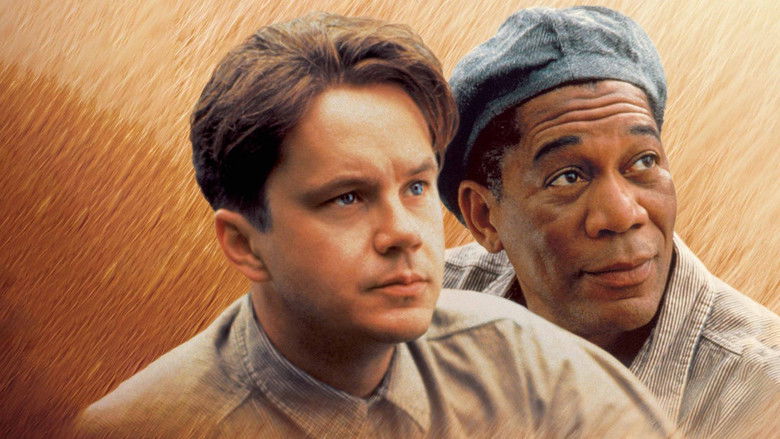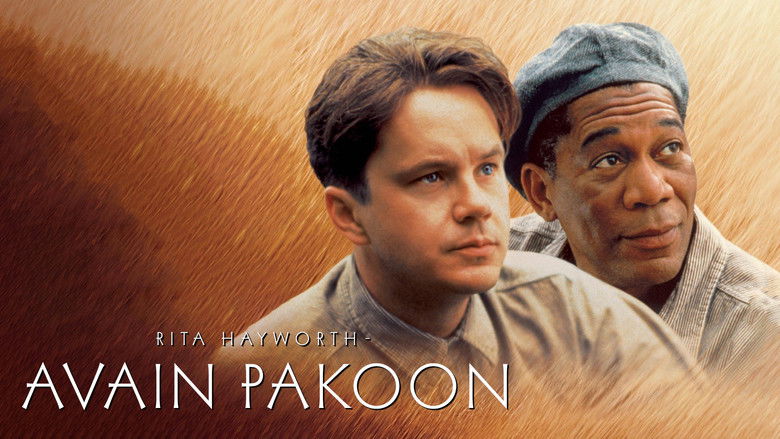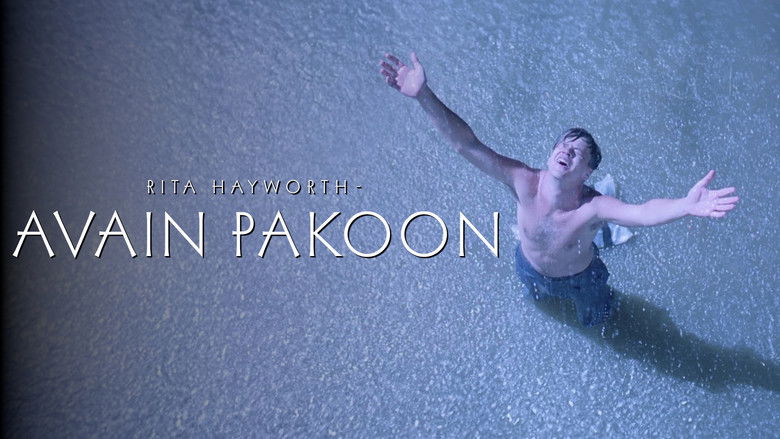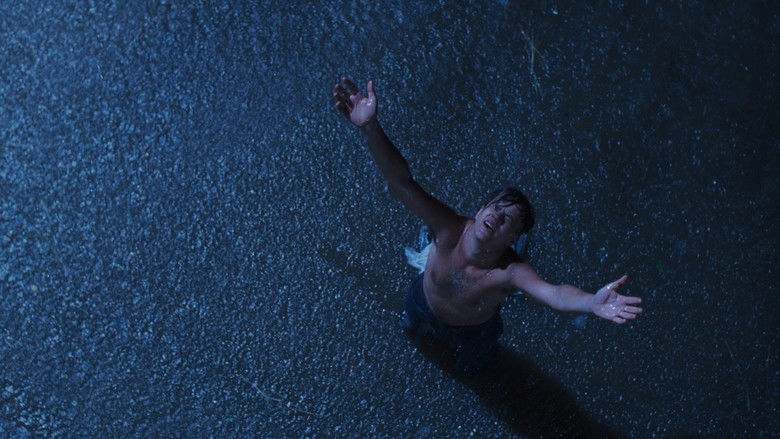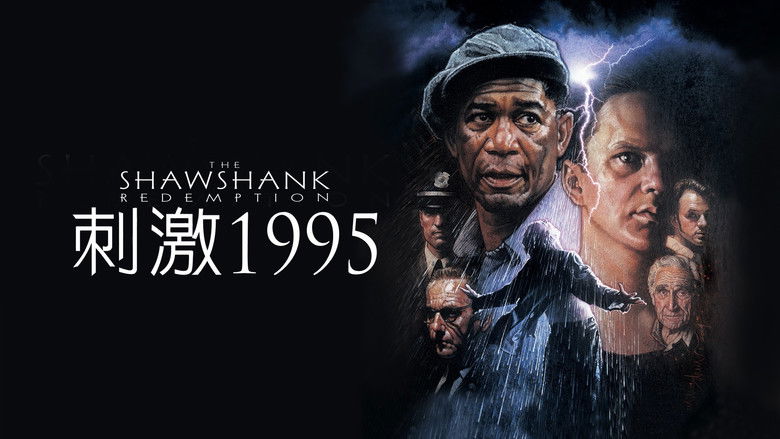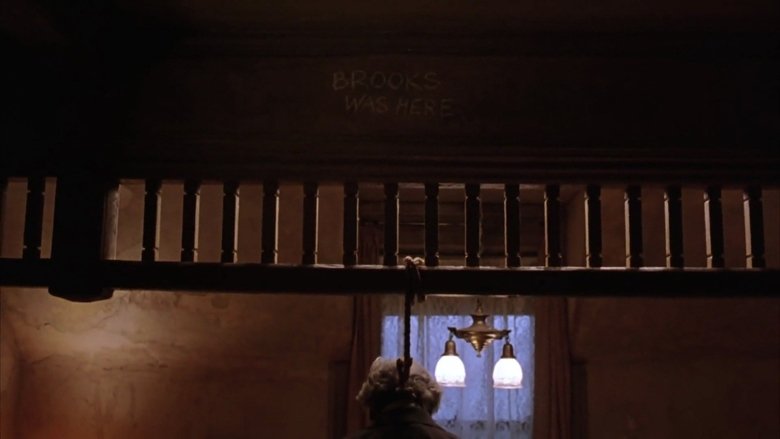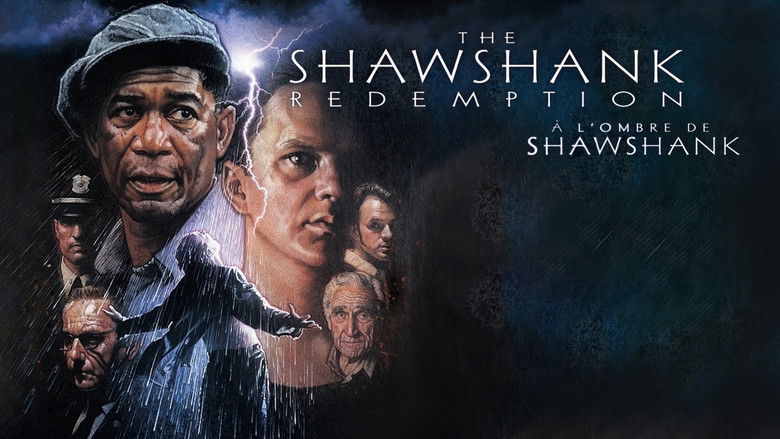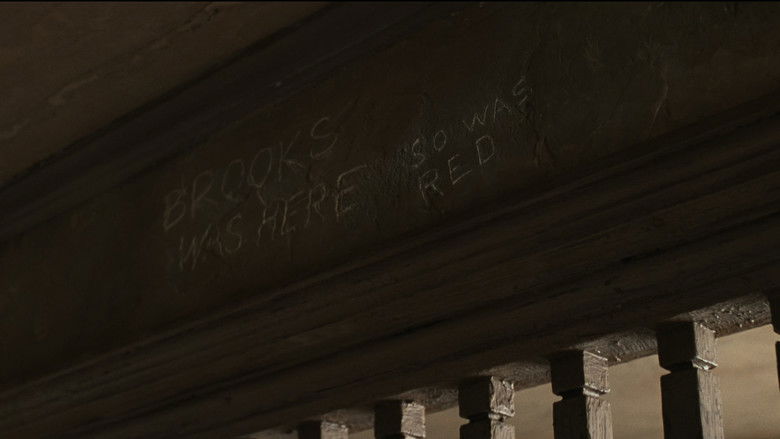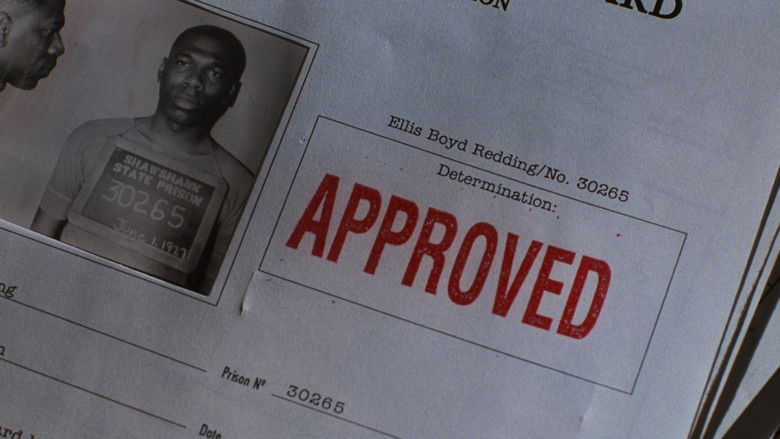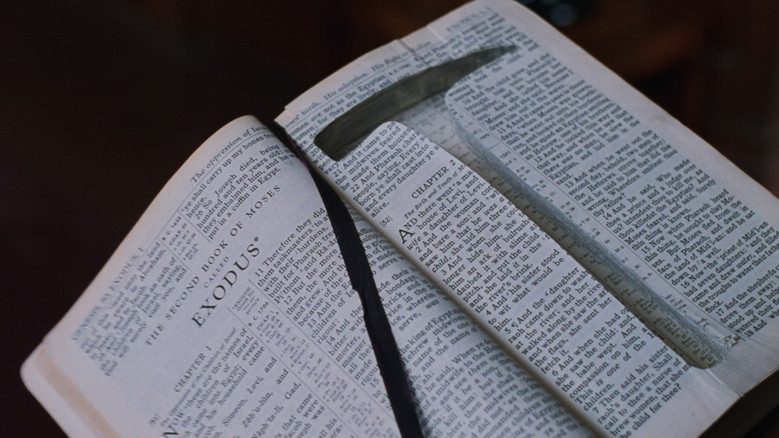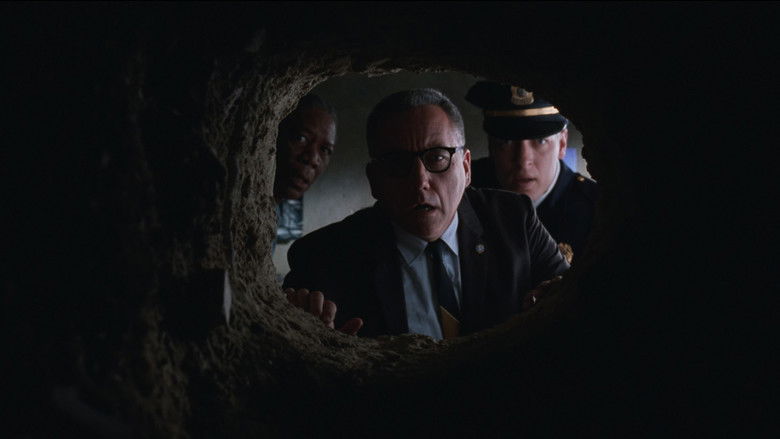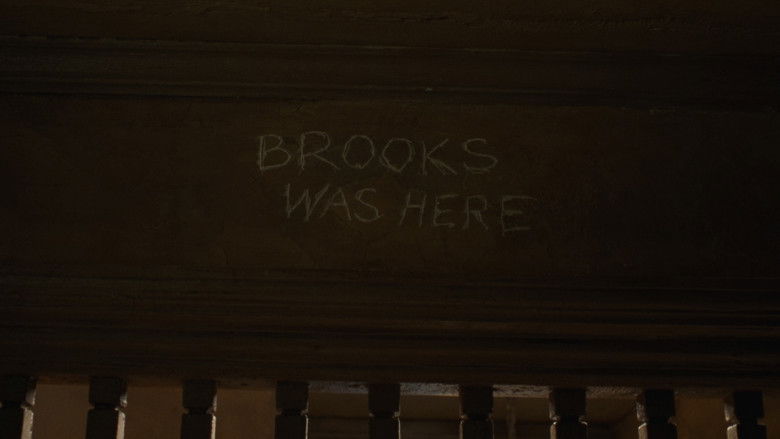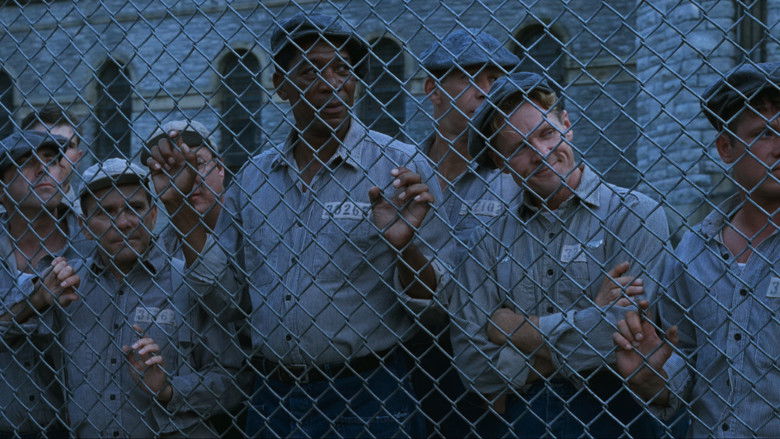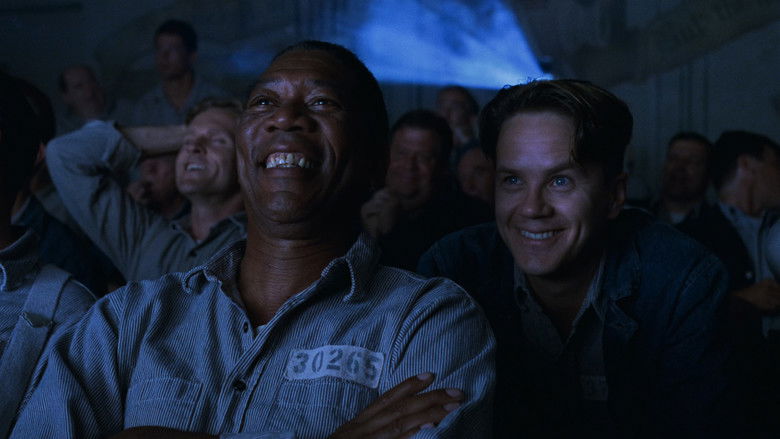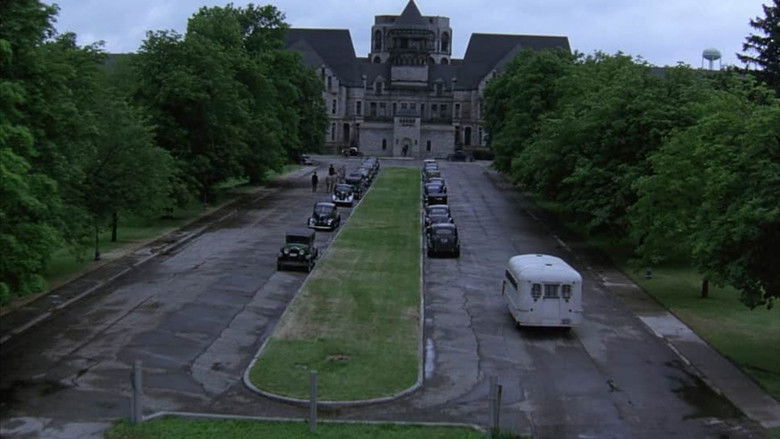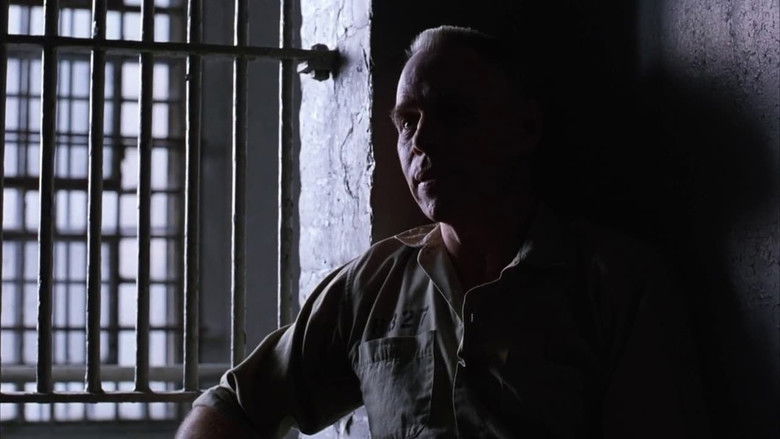Autor: Filipe Manuel Neto
**Português**
_**Um hino à Liberdade**_
Este filme é a adaptação cinematográfica de um romance de Stephen King, onde um banqueiro é preso por um crime que não cometeu e tem de se adaptar à vida da prisão. Mas como não li o livro original não vou tecer qualquer tipo de comentário à qualidade da adaptação em si. Não é invulgar vermos filmes onde o tema é a prisão, os erros da justiça ou a adaptação à vida atrás das grades. O que não é tão comum é vermos filmes tão excepcionalmente humanos passados neste tipo de ambiente. E melhor ainda: sem exageros, sem sentimentalismos baratos.
A ênfase é colocada na mensagem de que até na prisão se pode viver o sonho da liberdade, de que mesmo os prisioneiros mais culpados continuam a ser seres humanos. Andrew Dufresne não é um mero banqueiro traído pelo destino, mas uma pessoa profundamente generosa e humana, que mostra esses sentimentos até nas ocasiões mais penosas e que é capaz de sentir, e demonstrar, profunda empatia pelo seu semelhante. Ao invés de passar o tempo a lamentar a má sorte, Dufresne está mais preocupado em adaptar-se à sua nova situação e dar aos seus companheiros os meios para esquecer as barras da prisão e manter uma esperança, a mesma que ele mesmo tenta manter.
Dirigido e escrito por Frank Darabont, que penso que merece aplausos pelo bom trabalho, o filme tem um elenco muito bom, com Tim Robbins à cabeça no papel principal. Acho que não estarei a exagerar se disser que foi, pelo menos até hoje, o grande papel da carreira dele. Ao lado está Morgan Freeman, que dá vida a um presidiário crónico, especialista na arte do tráfico dentro da prisão, mas com um coração nobre e que age, ao longo do filme, como um narrador. Ainda uma palavra para Bob Gunton, que deu vida ao director da prisão. Este é o grande vilão do filme. Agindo de uma forma profundamente hipócrita, vive com a Bíblia nas mãos mas não hesita em fazer tudo aquilo que ela desaprova. Os detalhes técnicos do filme são igualmente irrepreensíveis: particularmente, destaco a agradável fotografia e a banda sonora impecável.
Nomeado para sete Óscares e dois Globos de Ouro, é quase inexplicável como veio a perdê-los todos. Teve sempre o apoio da crítica, mas a verdade é que foi um relativo fracasso comercial, o que só prova que muitas vezes o que é feito para vender não é bom o suficiente para ficar para a posteridade. Este filme vai decerto perdurar como um hino à esperança, à liberdade e aos valores humanos que muitas vezes esquecemos. Por mais grades que tenham as janelas, nada está perdido se o sol brilhar através delas.
**English**
_**A hymn to Freedom**_
This film is the film adaptation of a Stephen King's novel, where a banker is arrested for a crime he didn't commit and has to adapt to the life behind bars but, as I haven't read the original book I will not make any comment on the quality of the adaptation work. Its normal to see films where the subject is prison, justice mistakes or the life behind bars. What isn't so common is to see such human films in this kind of environment. Better: without cheap sentimentalisms.
The emphasis is placed on the message that even in prison we can live the dream of freedom, that even the most guilty prisoners continue to be human beings. Andrew Dufresne is not a mere banker betrayed by fate, but a deeply generous and humane person who shows these feelings even on the most painful occasions, and who is able to feel and demonstrate deep empathy for his fellow man. Instead of passing his time complaining about his bad luck, Dufresne is concerned with adapting to his new situation and giving his companions the means to forget the bars and maintain hope, the same hope that he also tries to maintain.
Directed and written by Frank Darabont, who I think deserves applause for the good work, the film has a very good cast with Tim Robbins in the lead role. I don't think I'm exaggerating it if I say it was, until now, the best part of his career. Next to him is Morgan Freeman, who gives life to a chronic convict, a specialist in the art of smuggling with a noble heart, who acts as a narrator. Still a word to Bob Gunton, who gave life to the prison director. He's the big villain here. Acting in a deeply hypocritical way, he lives with the Bible in his hands but doesn't hesitate to do everything it disapproves of. Technical details are equally good: I would highlight the pleasant cinematography and impeccable soundtrack.
Named for seven Oscars and two Golden Globes, it's almost inexplicable how it came to lose them all. It has always had the critic's support but it was a relative commercial failure, which only proves that what is made to sell may not be good enough to stay for posterity. This film is bound to last as a hymn to hope, freedom, and human values we often forget. Sometimes, windows can have bars, but nothing is totally lost if the sun shines through them.
Em 12 Feb 2018

